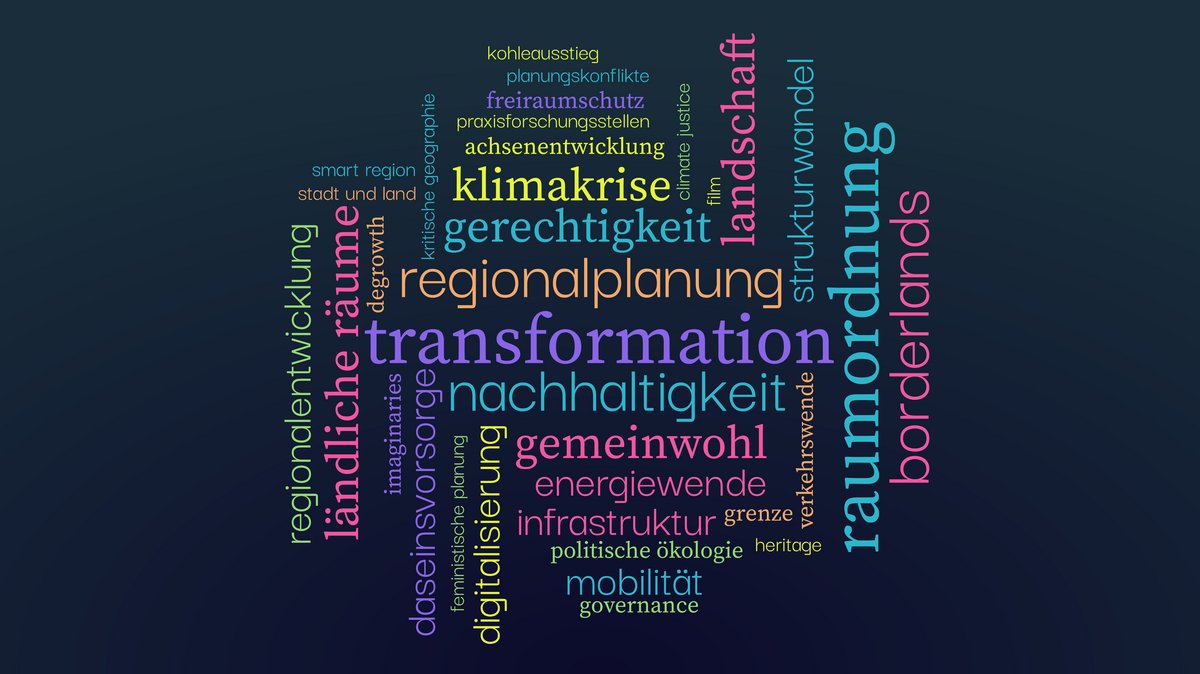The Department of Regional Planning has three areas of research:
"Common good objectives and instruments"
Regional planning and development are confronted with social change and controversies to which they have to find new answers. These include the renaissance of the debate on equivalence of living conditions (especially in rural areas and urban-rural contexts), the discourse on justice in planning practice and the demands on regional planning resulting from the climate crisis.
"Planning tasks and practices in transformation processes"
This research area is intended to address the challenges for spatial development that arise from regional transformation processes. The planned measures to phase out lignite and to support structural change in Lusatia represent such a challenge. Other challenges relate to the mobility sector and thus to local transport-orientated regional development, services of general interest and the energy transition. In conceptual terms, we aim to understand the importance of spatial development in shaping regional transformation processes. To this end, the traditions of thought of transition research and planning theory are to be related to each other. Transformation tasks are also an important aspect of transdisciplinary research in the field, in which co-creative approaches and cooperation with (planning) practice and civil society play an important role
"New regionalisations"
Regional planning and development play a role in regionalisation processes and in the emergence of new types of regional spatial constructs. New forms of regionalisation are developing in a complex structure of different governance arenas. Particularly striking examples are border regions or regions of rural development. The spread of regionalising practices is also explored. Conceptual and critical approaches of spatial, social and cultural sciences are used to understand spatial formations. Approaches of institutional and governance research, "border studies" and research on innovations are used to analyse and enhance the practices of regionalisation.

